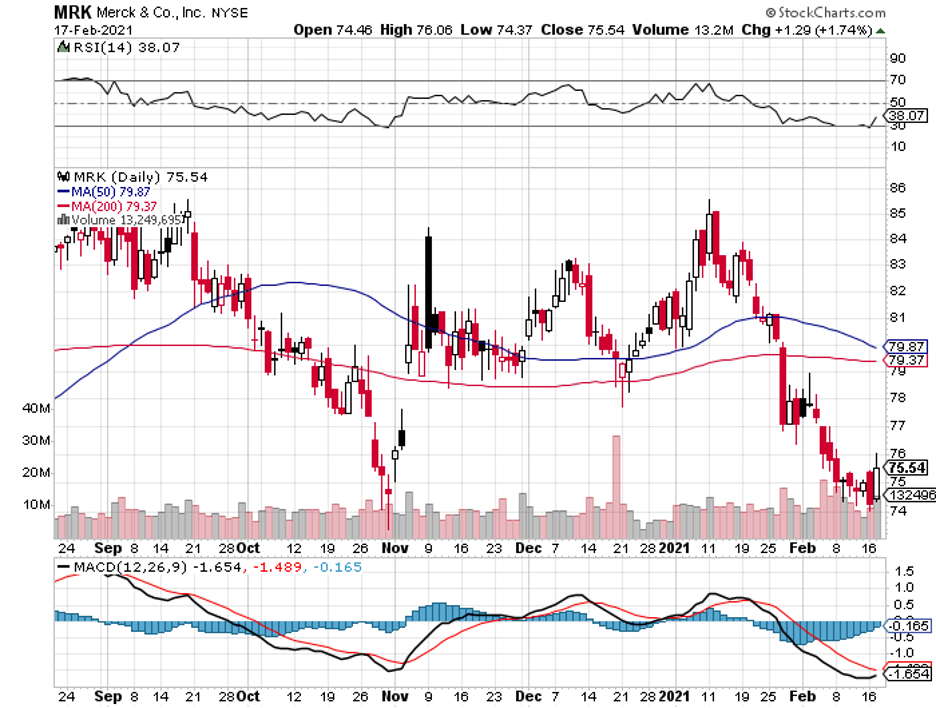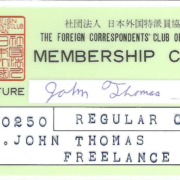Warren Buffett’s Biopharmaceutical Bets
Aside from the recent big moves involving Verizon Communications (VZ), Chevron (CVX), and Apple (AAPL), Warren Buffett has also been busy with biopharmaceutical stocks.
Just before 2020 ended, Berkshire Hathaway (BRK.B) made notable changes in its positions particularly in Merck (MRK), AbbVie (ABBV), Bristol-Myers Squibb (BMY), and Pfizer (PFE).
Berkshire boosted its investment in Merck by 28.1% to reach 28.7 million shares.
Meanwhile, its AbbVie holdings were increased by 20% to hit 25.5 million shares.
It also added 11.2% in its investments in Bristol, totaling to 33.3 million shares.
In contrast, the company cut 3.7 million shares from its Pfizer holdings.
In terms of growth potential, these biopharmaceutical companies hold the most promising prospects in the next decade.
Merck, hailed as a vaccine stalwart, is behind the blockbuster cancer treatment Keytruda.
For context, Keytruda generated $14.4 billion in sales in 2020 alone.
Despite fears over the expiring patent exclusivity of this drug, the company still trades at roughly 11.5 times earnings and is actually projected to achieve 11% long-term EPS growth rate.
Merck also continues to leverage Keytruda in the development of the next generation of treatments in its pipeline.
In fact, the company recently sealed a clinical collaboration with Nektar Therapeutics (NKTR) to assess the effectiveness of Keytruda when combined with Nektar’s own bempegaldesleukin in the treatment of squamous cell carcinoma.
Other than expanding its oncology sector, Merck has been developing its animal health business as well. So far, this particular segment has grown by 7% year over year, reaching $4.7 billion in 2020.
If things work out, then Merck could emerge as a huge competitor against Pfizer’s own animal healthcare spinoff, Zoetis (ZTS), in the future.
To date, Merck has at least 31 candidates in Phase 2 trials and 25 more undergoing Phase 3 studies.
Needless to say, these will be valuable in enriching the company’s lineup especially with the challenges that Keytruda will face in the next years.
As for AbbVie, this company trades at approximately 8.3 times the earnings estimated in the next 12 months. This is well below its five-year average of 10.4 times earnings.
However, the company is projected to show at least 13% EPS growth rate in the long term.
Despite the challenges of 2020, with the company going down 2.6%, the long-term prospects for AbbVie remain positive.
Although AbbVie broke through the dermatology market following its acquisition of Botox-maker Allergan in the past year, it still has to contend with a major problem: arthritis medication Humira.
Humira is not only AbbVie’s top-selling treatment but also the best selling drug in the world today.
In 2020 alone, this anti-inflammatory treatment raked in $19.8 billion in sales. However, AbbVie might soon lose this edge since its exclusive rights to Humira in the US will expire in 2023.
Amidst the anxiety over this issue though, AbbVie continues to defy expectations.
Last year, the company reported a 65.9% growth in its net revenue despite the overall slowdown caused by the pandemic.
As for 2021, AbbVie is anticipating an even better year thanks to its portfolio diversification efforts.
To date, the company’s lineup now spans neuroscience, immunology, eye care, women’s health, and of course, aesthetics.
Meanwhile, Bristol Myers has been pegged to achieve roughly 8% growth rate in the long term. Right now, the stock trade at 7.9 times earnings estimated over the next 12 months.
Like AbbVie and Merck, Bristol has been dealing with patent expiration issues—a problem that pushed its stock down by 4.1% so far this year.
One of the major updates involving Bristol is its massive $74 billion acquisition of Celgene in 2019.
While the deal raised a lot of eyebrows at the time, it brought cancer blockbuster Revlimid into the company’s fold.
Revlimid, which still enjoys protection from a flood of generics for a few more years, has been pumping up sales for Celgene nonstop for over a decade. The drug is expected to generate the same, if not higher, profits for Bristol.
Two more blockbuster drugs in Bristol’s lineup are facing impending patent exclusivity issues, Opdivo, which would expire in 2028, and Eliquis in 2026.
Nonetheless, the positives outweigh the negatives for Bristol. After all, this company invested so much in diversification.
Sales of Opdivo, Revlimid, and Eliquis continued to trend upwards last year.
Opdivo alone managed to generate $7 billion in annual revenue, prompting Bristol to expand the indications for this product.
However, the more promising news lies in the updates that the recently launched products, like multiple sclerosis drug Zeposia and anemia treatment Reblozyl, are gaining traction in the market.
Thanks to the development of its pipeline, the company expects that its new product lineup would account for roughly 27% of its total revenues by 2025.
Overall, Berkshire’s choice of biopharmaceutical companies are offering promising growths in the next several years despite the setbacks they are facing today.
While some investors get alarmed over negative updates, it looks like the Oracle of Omaha is following his own advice: “Whether we're talking about socks or stocks, I like buying quality merchandise, when it is marked down.”



